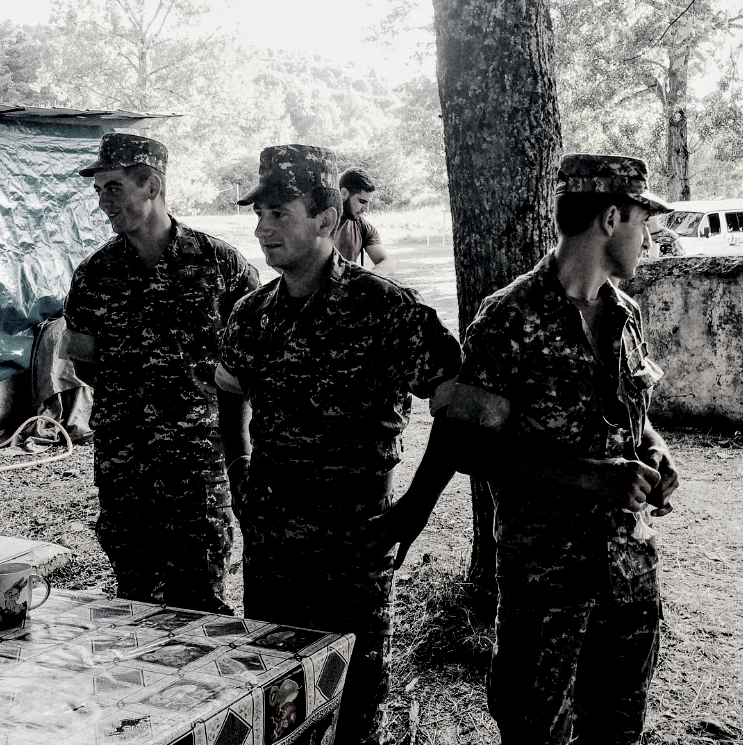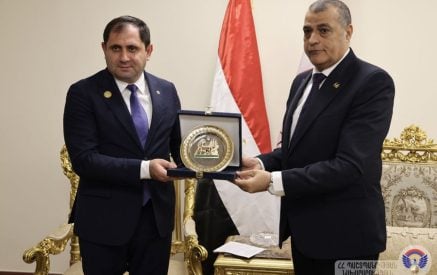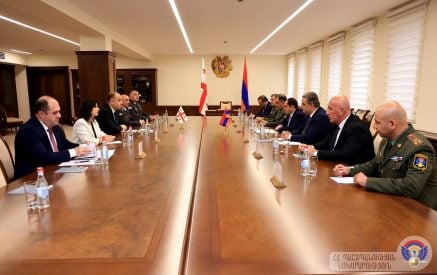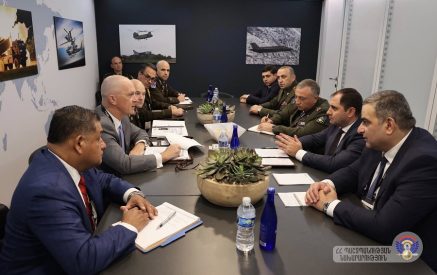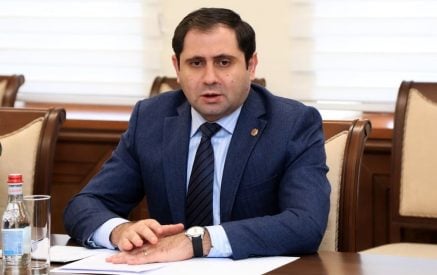Special for the Armenian Weekly
What happened in Artsakh in the month of April of last year contains a historical mystery—it was not merely a limited war. If we dig deeper, we may uncover an important secret.
We were proud of our army’s performance during that war and many of us justifiably said, “Long live our soldiers”. They were able to stop a surprise attack by a better-equipped enemy.
We all understand that Azerbaijan could not dare to start such a war by its own decision. Without talking to the Big Powers, such events never happen. From the first day of the enemy’s actions, military analysts were saying that this was not a big and a long-lasting war—that it was a “limited” war. The goal of Azerbaijan was clear, and that was to gain as much territory as possible within those limits.
The permission from the Big Powers to start a limited war was granted to Azerbaijan in order to make its position stronger during the negotiations with Armenia and to get more concessions. Karim Pakradouni, a Lebanese politician of Armenian origin, who was one of the leaders of the Lebanese Christians during the civil war in Lebanon, tells an interesting story. In the beginning of 1970s, he tried to talk to Yaser Arafat in order to ease the tension between the Palestinians and the Christians. On one occasion, Arafat visited the Christian area and he saw extreme and unrealistic anti-Syrian slogans everywhere. After seeing this, he advised Pakradouni, that it would be better if the Christians could avoid repeating the mistake of the Palestinians, by hysterically using such slogans, because when the time comes for a political solution, it would be difficult for the leadership to denounce them in front of its own people.
That is exactly what is happening with the Azerbaijan leadership. For the last several years, it has been constantly threatening Artsakh and Armenia. After making much noise—and perhaps bluffing—the Azerbaijani leadership became trapped by its slogans of taking Artsakh back. On one hand, it knew that it was not capable of doing it, but on the other hand, it something should be done: a short war, a blitzkrieg with the objective to take large territories from the buffer zone and, if possible, from Artsakh itself. It was also to show a historical and a big victory in front of the world and most importantly in the front of its own people.
The war started with Azerbaijan sending well trained and well equipped Special Forces to break the line. From our side, the first line was protected mostly by 18-20 year-old mandatory service soldiers. It seemed that they were no match and it would be an easy victory for the enemy. Here I will repeat the question that was asked for many times—How it was possible that the first line was protected mostly by young inexperienced soldiers?
Let us go back to the main topic and to see who these young soldiers were. Most of them are from impoverished families. In Armenia, it’s common for the rich to use their connections and bribe the officials to prevent their sons from serving in the army or at least from serving in Artsakh and on the front-lines. It is safe to assume that these young soldiers come from environments where they heard words of disappointment about their country from a young age. The disappointment is so deep, that people do not only talk negatively about the government but about the entire nation, which is a very concerning phenomena. These young soldiers could have very well been raised by continuously hearing the well-known words “Yerkiruh yerkir chi…” (“The country is not a country…”).
Logically, we can think that anyone who is in a similar circumstances will not be willing to endanger his life for a country that caused him and his family such disappointment. We can see that in the history of many nations. For example Russians, in the beginning of the WWII, switched sides by large numbers and fought with Germans against their own country, because they were disappointed with the communists. Another example are the Arabs, who were and are continuing to betray each other on both the lower and the upper levels, and in fact are working against their national interests. Coming to our young and inexperienced soldiers, to those poor people who felt betrayed by their own leadership, we witnessed a completely different picture.
And this is the miracle. They didn’t flee, they didn’t panic, and they heroically held up the line, having about a hundred martyrs until the main forces came in. In a few of days, the enemy was asking for a ceasefire, because it was afraid of losing territories. The blitzkrieg was stopped; the surprise did not happen; the plan was not accomplished and the war ended with Azerbaijan gaining a very small territory which was much less than the initial objective.
These youngsters are born in free Armenia—they are the representatives of the generation of independence. This heroic spirit is the secret that I was referring to in the beginning of the article. This spirit is the reason for our survival in the most desperate moments of our history—the same spirit of Vardanants, the same spirit of the Musa Ler and Van defenses, the same spirit of Sardarabad, and finally the same spirit of the Artsakh War of the 1990s. This is not foolish, nationalistic bragging, but a historical fact. Alongside with our culture, this spirit is the reason that we still exist and many nations of the empires who conquered us in the past do not.
It is painful to talk about our history, it is painful to talk about the loss of our territories, and it is painful to compare the sizes of the historical and the current Armenia. Vladimir Pozner, an internationally known Russian journalist and Putin critic, says that it is a miracle that Armenians still exist, despite the geographical location of our fatherland, which has often been in the middle of the policies and interests of the Big Powers.
I think the truth lies in the middle. On the one hand, it is true that the geographical location of our country was and is the main reason for our difficulties. But on the other hand, our internal problems had a big role in complicating our challenges and difficulties. Otherwise, why would Garegin Nejdeh say “the sins of the Armenians had more impact in the destruction of our country, than the enemies that invaded our land from time to time.” We can see that what was accomplished by our young people during the 2016 April War was a highlight in our history which we have been lucky to witness.
We bow down in the front of these heroes and pray for the souls of the martyrs. May the numbers of such heroes increase within our nation. May their example be an inspiration for us and especially for the young and future generations. And finally, may the existence of such chosen ones be a sign to our internal enemies, the corrupted system and officials who suck the blood of our people in Armenia, and to our external enemies as well.


















































